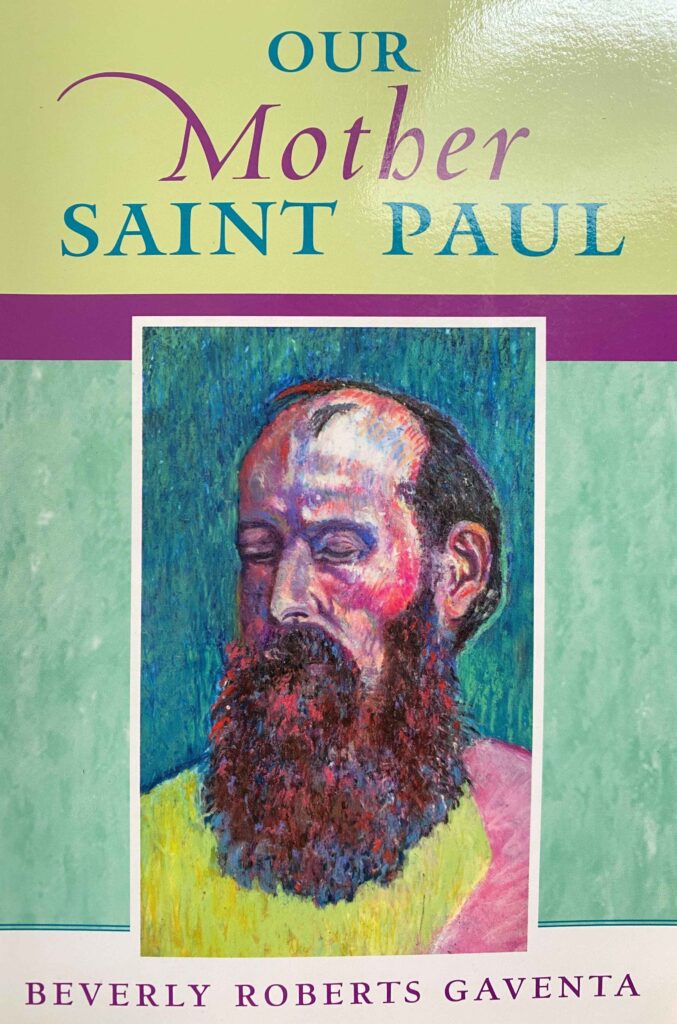There are some surprising metaphors used by Paul in chapter 2 of 1 Thessalonians, which seem especially appropriate as we approach Mothers’ Day, or Mothering Sunday as it was traditionally known in the UK. There’s even an allusion to those who ‘mother’ those who are not their biological children.

At the start of the second chapter of 1 Thessalonians, Paul continues his description of his approach and attitude when he visited Thessalonica to share the gospel. He mentions that he and his companions didn’t come with flattery or greed, or with a need to be praised by the people. They didn’t make demands on the Thessalonians, even though Paul believes they would have had a right to do so, in their capacity as apostles of Jesus.
In verse 7, Paul changes from negative to positive statements, and writes, “But we became infants among you, as if a nurse taking care of her own children.”*
There are several strange things going on here:
- It’s a difficult mixed metaphor – is Paul likening himself and his fellow apostles to infants or to nurses/mothers? How can one follow on directly from the other?
- In the second part, is he referring to a nurse taking care of someone else’s children or to a mother caring for her own?
- And what does it mean that Paul, a man, uses a metaphor of a woman for himself?
Rather than worrying about the mix of imagery, we should assume that Paul meant to convey something by using the dual metaphor of infant and nurse. Beverley Roberts Gaventa, in the book pictured above, helpfully suggests that “’among you’ the apostles became infants, innocent characters, lacking the guile and deceit of a charlatan.”
But they are also like nurses who take care of their own children and there is another tension in the language here. A ‘nurse’ would not be caring for ‘her own’ children but those of another woman she was working for. Paul’s language illustrates the depth of feeling that someone caring for children can have for children who are not biologically related, as contemporary adoptive and foster parents do – the verb translated ‘care for’ has a range of meaning including warm, cherish, comfort, or (possibly) foster. Paul uses this metaphor to illustrate the depth of care he has for the Thessalonians.
Paul’s use of a maternal metaphor for himself makes the point that this care (either literally for children as they grow up, or for Christians walking a life of discipleship) can come from either women or men. He uses other contrasting metaphors later in the chapter, also based on family relationships.
So, as we approach Mothering Sunday, let’s be grateful for all the people who ‘mother’ children, whether or not they are biologically related to them. We think of adoptive mothers, those who wish they were mothers, foster mothers, birth mothers, aunts, grandmothers, and everyone who has stood in for mothers. We think too of men who nurture and cherish children, who can say (with Paul) that they do ‘mothering’ as well as ‘fathering’. And we give thanks to God for them all.
*Depending which English translation you consult, verse 7 refers either to Paul and his companions being ‘infants’ or ‘gentle’. The different words come from different Greek manuscripts in which one letter is either present or absent (think of the difference in English between ‘cable’ and ‘able’ or between ‘start’ and ‘tart’ – the presence or absence of one letter makes an entirely different word). Many commentators think that reading ‘gentle’ makes better sense of Paul’s line of thinking, but many others note that ‘infants’ is in the older manuscripts. I’ve quoted the verse as translated by Beverly Roberts Gaventa, and other translations take a similar line, including the NIV.
I found this an interesting read. I’ve just started a blog too on what I’ve learned about God through fostering – if you’d like to have a look it’s at idaredtocallhimdaddy.com
Thank you, I will take a look.